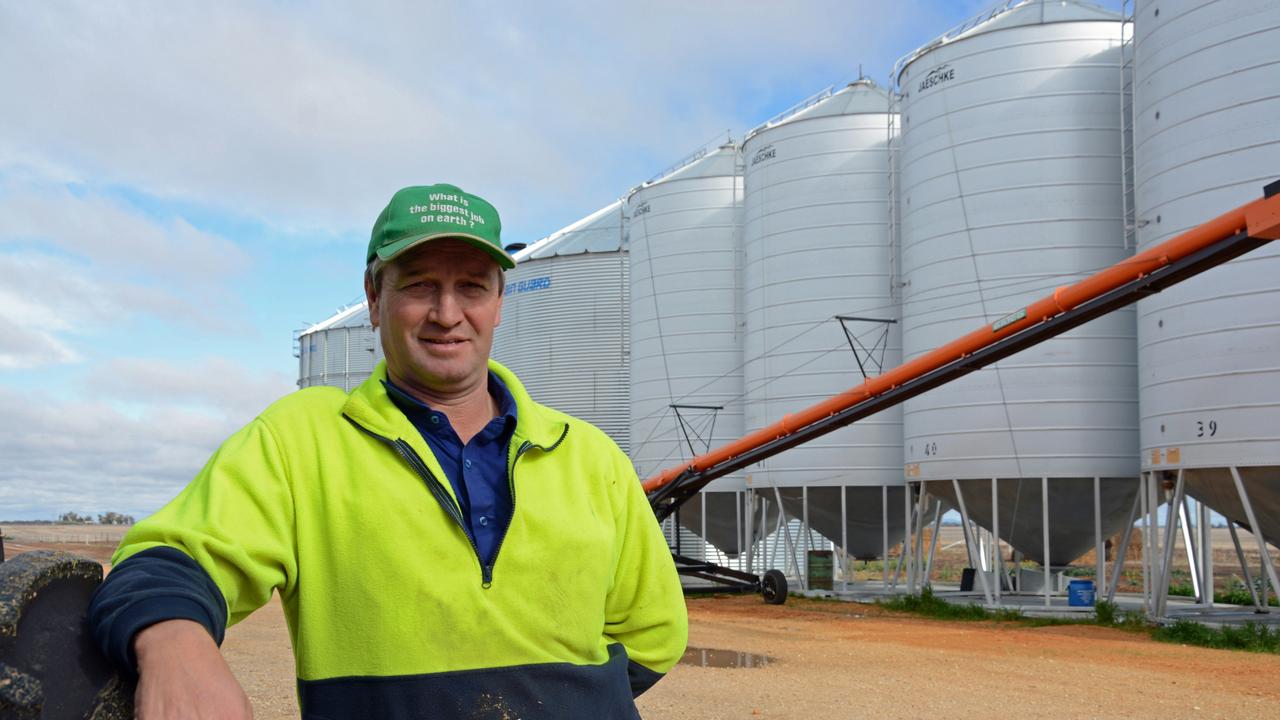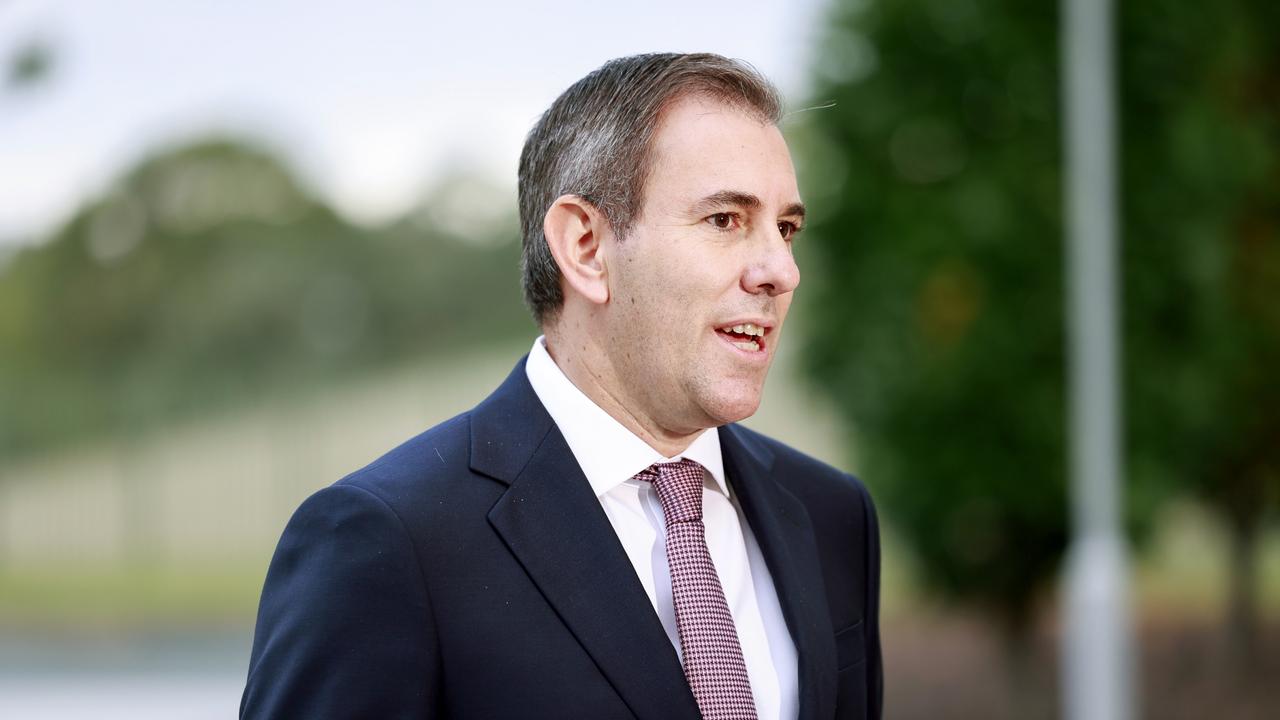Farmers ’applaud’ government for standing ground as trade talks with the EU collapse
Industry leaders have welcomed the hardline approach of Trade Minister Don Farrell, who walked away from EU free-trade talks due to agricultural market access.

Farm leaders have “applauded” the government for walking away from free-trade talks with the European Union, which broke down due to agriculture market access.
Trade Minister Don Farrell had travelled to Osaka at the weekend “with the intention” of inking an EU-Australia free-trade deal.
However, details are emerging that a delegation of consulting farm groups - also in Osaka - warned Mr Farrell that they would not publicly support a watered-down deal.
Last week, the agriculture industry launched a public campaign urging the government not to sign a “dud” deal.
The parties met on the sidelines of the Group of Seven trade ministers meeting yesterday to pre-empt a full day of negotiations locked in for Monday.
However, it quickly became apparent to Australian representatives that the EU offer would not meet the expectations of the agriculture industry.
Sources said the “new” offer had surprised Australian negotiators after months of high-level discussions indicated that a better deal for agricultural products would likely be tabled.
In a surprise twist following the collapsed talks, an EU spokesperson said Australian negotiators had indicated Australia might have been more flexible on its own agriculture market access offer.
“The Australian side re-tabled agricultural demands that did not reflect recent negotiations and the progress between senior officials,” the spokesperson told media.
National Farmers’ Federation president David Jochinke thanked the government for not throwing “Aussie farmers under the bus” just to get a deal done.
Mr Jockinke said the EU offer would have “hardwired protectionism” into the trading partnership and put local farmers at a disadvantage to international competitors.
“Today’s decision was a hard one, but ultimately it was the right one. We thank Minister Farrell and Agriculture Minister Murray Watt for standing by Australian farmers and walking away from an unacceptable offer,” Mr Jochinke said.
“It’s disappointing the Europeans weren’t willing to put something commercially meaningful on the table. This was always going to be a tough negotiation with no guarantee of an outcome.”
MONDAY, OCTOBER 30, 9am
Free trade talks with the European Union have again collapsed, with Australian and EU negotiators walking away from the table after an impasse over agriculture market access.
Trade minister Don Farrell had travelled to Osaka at the weekend “with the intention” of inking an EU-Australia free-trade deal.
The parties met on the sidelines of the Group of Seven trade ministers meeting yesterday to pre-empt a full day of negotiations locked in for Monday.
However, it quickly became apparent to Australian representatives that the offer would not be an adequate improvement on the one they had rejected three months ago.
Sources said the “new” offer had surprised Australian negotiators after months of high-level discussions indicated that a better deal for agricultural products would likely be tabled.
The talks have now been put on ice as Europe enters its election cycle.
According to insiders, Trade Minister Don Farrell “could not have been clearer” prior to the meeting regarding what Australia needed to get a deal done and that he would reject any offer that did not include “meaningful benefits” for Australian businesses, including improved market access for farmers and producers.
The source said that Mr Farrell’s hard line stance surprised the Europeans, who sent both its Trade Commissioner Valdis Dombrovskis and Agriculture Commissioner Janusz Wojciechowski to Osaka as an indication of their confidence “they were going to seal the deal”.
According to insiders, one reason for the offer not matching behind-closed-door optimism was that Europe did not want to anger its powerful farming lobby groups, particularly in France, prior to next year’s plebiscite.
Those groups have rallied against an EU-Australia FTA.
Meanwhile, Australian farm leaders had called for Australia to not accept a “dud” deal.
A key stumbling block was that the EU had failed to remove, or water down, protectionist clauses layered over the deal designed to protect European farmers.
These clauses would only allow a quota system for products, rather than authentic liberalisation of free trade.
The quotas offered, particularly for beef, sheep and sugar, were previously described as “substandard”.
EU president Ursula von der Leyen believed the trade deal was certain to be signed at July’s NATO summit and was strong in her reaction when that rendition of talks fell through.
FRIDAY, OCTOBER 27
Australian and European Union negotiators will hold a marathon one-day session early next week to thrash out “red line issues” in a last-ditch attempt to ink a historic free trade deal.
The meeting between federal Trade Minister Don Farrell and European Union executive vice president Valdis Dombrovskis will be the final opportunity for the parties to sit down before Europe shifts into next year’s electoral cycle.
The meeting comes as Australian farm leaders this week urged Mr Farrell not to “fall for the lure of the signing table” and ink a “dud” deal with Europe.
Mr Farrell walked away from a previous offer in July, arguing that the deal on offer was not in Australia’s national interest after the EU failed to increase export quotas for major agricultural products including beef, sheep and sugar.
However, it’s understood what the deal could offer on other issues in Australia’s national interest – including security, critical minerals, migration, tourism and manufacturing and supply chains – were increasingly becoming considerations.

Mr Farrell told The Politics podcast on Thursday that although “we need a better offer from them on sheep meat, on beef and on sugar”, he would sit down in Osaka following the Group of Seven trade ministers meeting this weekend “with an open mind and optimistic disposition”.
“I’m hoping that the time lapse between (July) and now gives them the opportunity to make us a better offer, and on that basis if it’s good enough, I’ll be recommending to the Australian people that we should accept it,” he said.
“My job is to make a decision on the national interest, and if on balance the things that are good about the European trade agreement outweigh the things that are bad, because there’s always bad things in agreements, then I feel I’ve got an obligation to the Australian people to say: ‘Yes, we’ll sign this agreement’.”

Mr Farrell said if a deal was not reached this week, “I think we will have lost the opportunity for two, perhaps three years to come back and resolve this”.
While both sides have closely held their negotiating positions, high-level discussions between officials have “tinkered” with the deal behind-the-scenes in recent months.
The parties now believe the time is right for a final round of ministerial negotiations and sources said that both sides would not be resuming talks “unless there was a better offer on the table”.
A key issue has been the use of geographical indication names, with Europe listing almost 400 it wants barred from use by Australians, including feta, prosecco and parmesan.
Agriculture Minister Murray Watt recently told The Weekly Times that the government could relax its hard-line stance on GI products to hammer out a deal, with alternate options including grandfathering provisions and concessional labelling.
Australian Wine and Grape chief executive Lee McLean said losing the GI rights to prosecco would “destroy a $200 million part of our industry”.
“There needs to be a fair bit of movement from the European side, and although the name might be on the table, I would ask that the government not rush into anything,” he said.
EU president Ursula von der Leyen was said to have been angered when the previous deal was not signed at July’s NATO summit in Lithuania.
Earlier this week Prime Minister Anthony Albanese announced $2 billion to increase domestic critical minerals development – resources that Europe covets greater access to under a trade deal.
CATTLE CLASS DEAL
Meanwhile, Australia’s livestock industries are fearful they will be the losers in current Australia-EU FTA negotiations, warning any deal struck could have long-term implications for future growth in beef and sheepmeat volumes to the EU.
Current quotas and tariffs limit Australia’s exports to the EU, with Australian product making up just 4 per cent of beef imports and 3 per cent of lamb to the destination.
Cattle Australia chairman David Foote said there was concern a deal would be signed “that was not just unhelpful, but extremely limiting to Australian agricultural businesses”.
“Based on the original offers, and the extremely limited volume access we will likely have to the EU, this agreement gives us no opportunity to either grow our volume over time nor operate on a level playing field with other agrifood-producing nations such as the United States, New Zealand, Canada and South America, in a trade environment where the EU directly competes with meat exports to our key markets such as China, South Korea, Japan and the US,” Mr Foote said.
Australian Lot Feeders’ Association president Barb Madden said there was an expectation that any deal would deliver “significantly improved access for Australian beef producers and the entire beef supply chain”.
“We need the Australian government to correct the imbalance of our meat trade with Europe and secure comparable FTA outcomes achieved by our competitors,” Mrs Madden said.
Meanwhile, Sheep Producers Australia chief executive officer Bonnie Skinner said the EU could be a big winner for the industry if greater access could be given to a market with more than 450 million people.
“Negotiations towards solid trade reforms and a level playing field are vital for the future prosperity of our industry – so the government simply must maintain its stated objective of securing us significant increases in market access,” she said.




